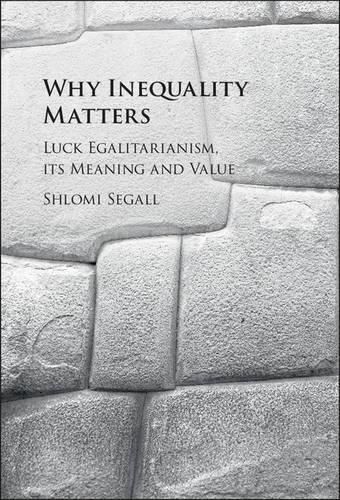Readings Newsletter
Become a Readings Member to make your shopping experience even easier.
Sign in or sign up for free!
You’re not far away from qualifying for FREE standard shipping within Australia
You’ve qualified for FREE standard shipping within Australia
The cart is loading…






Equality is a key concept in our moral and political vocabulary. There is wide agreement on its instrumental value and its favourable impact on many aspects of society, but less certainty over whether it has a non-instrumental or intrinsic value that can be demonstrated. In this project, Shlomi Segall explores and defends the view that it does. He argues that the value of equality is not reducible to a concern we might have for the worse off, or to ensuring that individuals do not fall into poverty and destitution; instead he claims that undeserved inequalities, wherever and whenever we might find them, are bad in themselves. Assessing the strength of competing accounts, such as sufficientarianism and prioritarianism, he brings together for the first time discussions of the moral value of equality with luck- or responsibility-sensitive accounts of distributive justice. His book will interest readers in political and moral philosophy.
$9.00 standard shipping within Australia
FREE standard shipping within Australia for orders over $100.00
Express & International shipping calculated at checkout
Equality is a key concept in our moral and political vocabulary. There is wide agreement on its instrumental value and its favourable impact on many aspects of society, but less certainty over whether it has a non-instrumental or intrinsic value that can be demonstrated. In this project, Shlomi Segall explores and defends the view that it does. He argues that the value of equality is not reducible to a concern we might have for the worse off, or to ensuring that individuals do not fall into poverty and destitution; instead he claims that undeserved inequalities, wherever and whenever we might find them, are bad in themselves. Assessing the strength of competing accounts, such as sufficientarianism and prioritarianism, he brings together for the first time discussions of the moral value of equality with luck- or responsibility-sensitive accounts of distributive justice. His book will interest readers in political and moral philosophy.